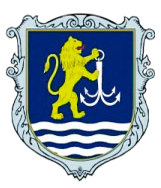FOCUSED RESEARCH ON TECHNOLOGICAL INNOVATIONS IN SHIPPING INDUSTRY: REVIEW AND PROSPECTS
Abstract
Introduction. Maritime transportation has always been an important component of global trade and commerce. The emergence and development of new technologies, as well as growing demands for efficiency and sustainability, have led to a period of transformation in the industry. The introduction of new technologies is no longer a choice, but a necessity for maritime transport enterprises to remain competitive and meet the requirements of a rapidly changing market. The advantages of using innovative technologies in maritime transport are numerous, allowing for better control of the ship and her propulsion system, which in turn reduces the risks of harmful impact on the ecosystem. The latest technologies can significantly improve the efficiency of maritime operations, which includes optimizing shipping routes and reducing fuel consumption. Shipping companies are able to use improvements in both hardware and software to optimize their fleet monitoring and management operations through satellite data and shipboard sensors that connect equipment, which increases safety of navigation, helps to address environmental issues in shipping and improves the operational efficiency of transport operations. Purpose. This article offers an overview of the background of technological innovation, the current state of the maritime transportation industry, and the challenges it faces in adopting new technologies. It also looks at some of the recent technological advances and their potential impact on the industry and the prescriptive opportunities that maritime transport has to offer. Results. The process of introducing the latest technologies is a way to overcome regulatory barriers and high investment costs, modern ways for transport companies to navigate the complex landscape in order to realize the full potential benefits of such technologies and a constant search for a balance between improving operational efficiency and solving environmental problems. Conclusion. In assessing the future of such technologies, it should be noted with confidence that the introduction of new technologies has the potential to fundamentally change maritime transport, so adopting these changes and utilizing them contributes to a more sustainable, efficient and competitive industry.
Downloads
References
2. Technology will help maritime transport navigate through the pandemic- and beyond. (2020). World bank blogs. Yin, L. Retrieved from: https://blogs.worldbank.org
3. 10 Smart Ship Technologies For The Maritime Industry. Menon A. (2021). MarineInsight. Menon, A. Retrieved from: https://www.marineinsight. com/know-more/10-smart-ship-technologies-that-maritime-industry
4. Babicz J. (2015). Wärtsilä encyclopedia of ship technology. 2nd edition, Helsinki, 663 p.
5. Xu, J., Li, Z., Sha, H., Wu, S. (2023). Status of Research and Application Cases in Intelligent Shipping. In book: Proceedings of PIANC Smart Rivers 2022. doi:10.1007/978-981-19-6138-0_81
6. Wagner, N., Wisnicki, B., (2022). The Importance of Emerging Technologies to the Increasing of Corporate Sustainability in Shipping Companies. Sustainability, 14, 23. doi: 10.3390/su141912475
7. Gavalas, D., Syriopoulos, T. & Roumpis, E. (2022). Digital adoption and efficiency in the maritime industry. Journal of Shipping and Trade, 7, 11. doi:10.1186/s41072-022-00111-y
8. Milić-Beran, Ivona & Milošević, Dragana & Šekularac-Ivošević, Senka. (2021). Teacher of the future in maritime education and training. Knowledge International Journal, 46, 119–125.
9. Sekularac-Ivošević, Senka. (2021). The Priority Areas of Innovations in Maritime Industry: An Application to the Adriatic Marine Environment. doi:10.1007/698_2020_712
10. Polejack, Andrei. (2023). Innovate or Fade-Introducing Ocean Innovation Diplomacy to the Maritime Sector. doi:10.1007/978-3-031-24740-8_2
11. Browne, K., Raff, M. (2023). The Private Law Perspective-Rights of Salvage and Innovation in the United States Admiralty Courts. doi:10.1007/978-3- 031-10568-5_6
12. Melnyk, O., Onishchenko, O., Onyshchenko, S., Voloshyn, A., Kalinichenko, Y., Rossomakha, O., Naleva, G., Rossomakha, O. (2022). Autonomous Ships Concept and Mathematical Models Application in their Steering Process Control. TransNav, the International Journal on Marine Navigation and Safety of Sea Transportation, 16, (3), 553–559. doi:10.12716/1001.16.03.18
13. Melnyk, O., Onyshchenko, S. (2022). Navigational safety assessment based on Markov-model approach. Scientific Journal of Maritime Research, 36 (2), 328–337. doi:10.31217/p.36.2.16





